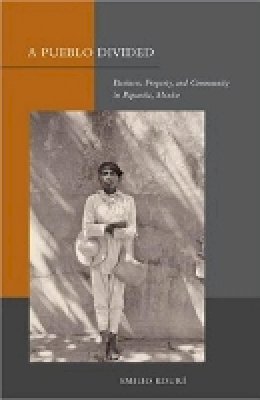9%OFF

Stock image for illustration purposes only - book cover, edition or condition may vary.
A Pueblo Divided: Business, Property, and Community in Papantla, Mexico
Emilio Kourí
€ 33.99
€ 31.07
FREE Delivery in Ireland
Description for A Pueblo Divided: Business, Property, and Community in Papantla, Mexico
Paperback. This book is a history of the conflict-ridden privatization of communal land in the pueblo of Papantla, a Mexican Indian village transformed by the fast growth of vanilla production and exports in the second half of the 19th century. Num Pages: 408 pages, 21 tables, 7 figures, 2 illustrations, 8 maps. BIC Classification: 1KLCM; GTB; HBJK. Category: (UP) Postgraduate, Research & Scholarly; (UU) Undergraduate. Dimension: 5969 x 3963 x 23. Weight in Grams: 567.
A Pueblo Divided tells the story of the violent privatization of communal land in Papantla, a Mexican Indian village transformed by the fast growth of vanilla production and exports in the late nineteenth century. The demise of communal landholding, long identified as one of the leading causes of the Revolution of 1910, is one of the grand motifs of Mexico's modern history. It is also, surprisingly, one of the least researched. This is the first study of the process of village land privatization in Mexico. It describes how a complex interplay of commercial, political, demographic, fiscal, and legal pressures led ... Read more
Show LessProduct Details
Format
Paperback
Publication date
2004
Publisher
Stanford University Press United States
Number of pages
408
Condition
New
Number of Pages
408
Place of Publication
Palo Alto, United States
ISBN
9780804758482
SKU
V9780804758482
Shipping Time
Usually ships in 7 to 11 working days
Ref
99-1
About Emilio Kourí
Emilio Kour is Associate Professor of History and Director of the Katz Center for Mexican Studies at the University of Chicago.
Reviews for A Pueblo Divided: Business, Property, and Community in Papantla, Mexico
"A Pueblo Divided rethinks the history of Mexico during the nineteenth century from the perspective of one community. Its great innovation is to see evolving divisions and integrations within indigenous Papantla in the context of both the production of vanilla for a developing Atlantic export economy and the consolidation of the 'liberal' state via land privatizations and political interventions. Detailing ... Read more
